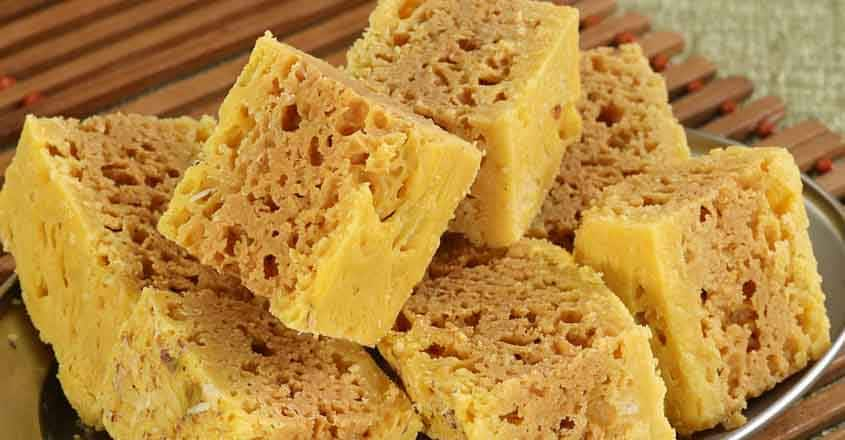Know your sweets: Diwali on S M Street

Mail This Article
Diwali – a festival that drenches our hearts and stomachs with a lot of sweetness and a lot more sweets. May be because Diwali is the celebration of the victory of good over evil, it is the sweetest of all festivals. The smell of sweets have filled up the air of Kozhikode, the taste capital of Kerala. To walk through the Mittayi Street, over the rock-carpeted floor, under the antique lamps, munching on your favourite sweets, is the best Diwali experience one can have.
The name 'Mittayi street' which means 'sweets street,' has a story to tell. Years ago, a Samoothiri who had a sweet tooth, brought home sweet-makers from Gujarat and gave them a place near his palace. And enjoyed watching the sweet making process through his window.
On one side, sits S K Pottakkad, the avid traveller fixing his eyes on the street. The shop named Krishnamaharaj Halwa store, which sold his favourite badam sarbath, is still there right at the beginning of the street with the same old name-board 'Hot and Coolbar.' The sight of Diwali sweet boxes stacked in the store is inviting indeed.
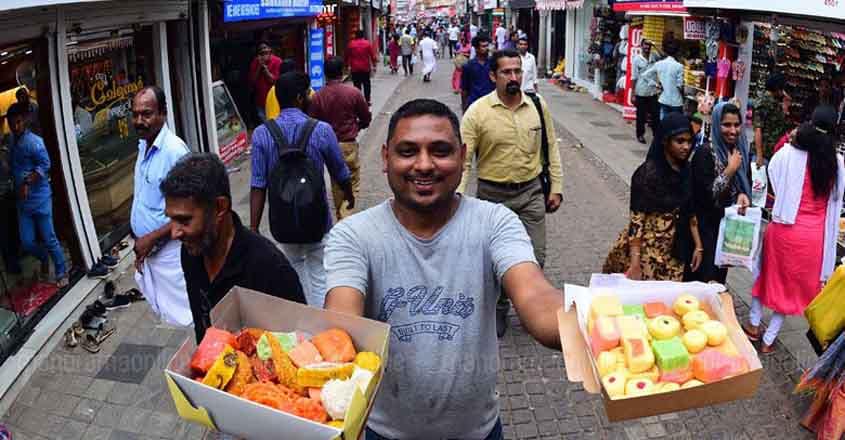
As one walks through various textile shops, few snippets of history come to mind. It was in this street, the first bakery was opened. Mambally Bappu and his younger generation opened bakeries in different names here. Modern bakery, Cochin Bakery etc, to name a few prominent ones. Aarya Bhavan and Radha theatre still stand proud in the midst of all.
Wheat house near the Court road is now no more, however the taste still lingers in the hearts of the people. Crossing the Hanuman temple, towards the south end of the street, bakeries are in plenty. Two Shankaran bakeries, Jayabharath Malabar Halwa stores and the New Oriental bakery, are all busy selling Diwali sweets.
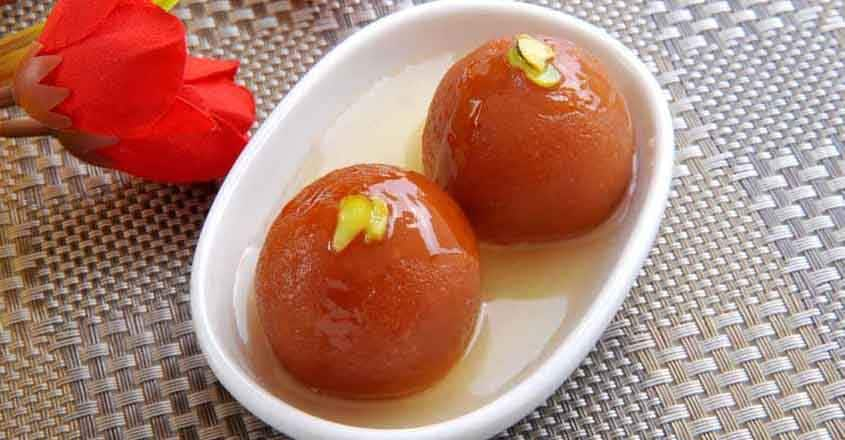
The name S M is the abbreviation of 'Sweet Meat'. Some foreigner who came years ago tasted the halwa and called it sweet meat. And the street where you get the famous halwa came to called as the 'Sweet Meat Street' which is popular with its Malayalam equivalent "Mithai Theruvu'.
The the street inhabited by the Gujaratis who came for business, came to be called as the Gujarati street. Sweet boxes ranging from Rs 100 to 500 are the stars during the festival. Boxes with laddus and Mysore paks are relatively cheaper. Sweets made with cashews and milk top the price list. Exclusive milk sweets are also available.
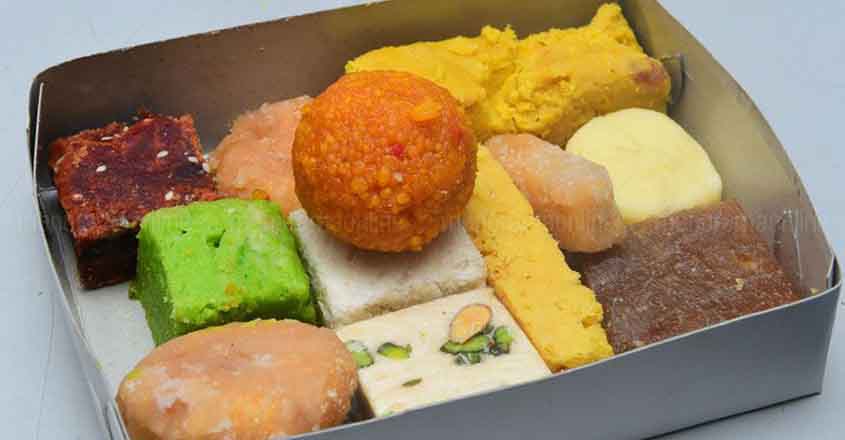
Jalebi, laddu, Mysore pak, milk sweets like peda, rasgula, barfi, and gulab jamun, fill the boxes and are truly irresistible.
Honey-dripping jalebis
According to food historians, Jalebi originated in either Arabia or Persia. The name 'jaleb' has its roots in the Arabic word Salabia and the Persian word Silabia. The word Jalebi was used by a thinker named Jinasuran in his writings in Kannada during the time AD 1450.
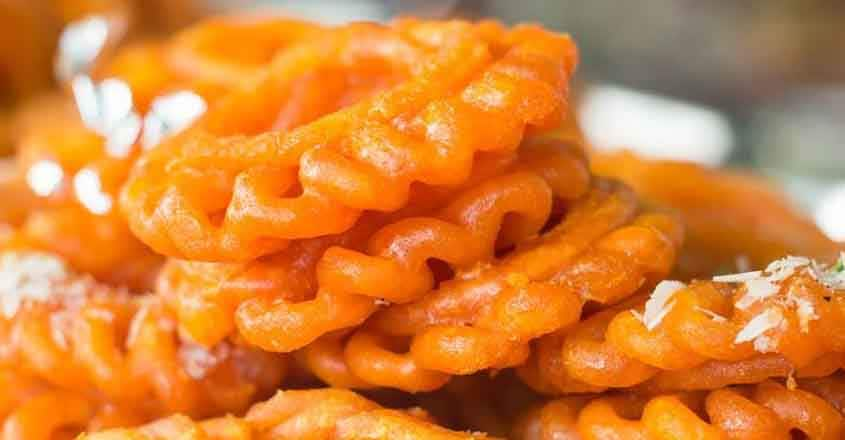
Jagari, the miniature of jalebi is believed to have been first made for emperor Jahangir. The word Jahangeeri gradually became jagari.
Dearest laddu
From the time of Indus Valley civilisation, laddu has been a favourite of our people. Modakam (rice dumpling) is said to be the mother of laddu. The laddu offering of Thirupathi temple is globally famous. A detailed description of laddu-making can be found in the book, Sivathathvarathnakaram written by Keladi Basavaraja in AD1700. Another interesting story is that there exits evidence that King Srenika served laddu as a dessert in his feast, way back in AD 1000.
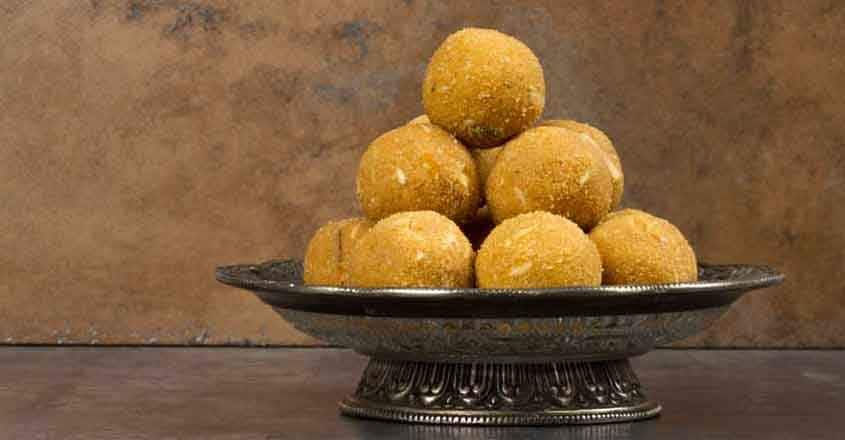
Peda, the milkman
It is believed that peda originated in Gujarat. As the history goes, most of the sweets including peda was believed to have been originated on the banks of the river Ganges. It was at the same time barfi and other similar sweets were first made in Bengal. According to food historians laddu is as old as 3000 years.

Sweets of Bengal
Diwali is not complete without Bengali sweets. A man named Chandradas, born to a family that ran a sweet business is known as the godfather of today's Bengali sweets. Chandradas gave birth to rasgulla in 1868 at the age of 22. Fifty years past, his son Krishnadas made rasmalai for the first time. It was this same father-son duo that popularised gulab jamun internationally. The company K C Das and sons exported Bengali sweets worldwide.
Pak from Mysuru
Interestingly nothing much is known about Mysore pak. It seems that the sweet got its name because it took its birth in Mysore, Karnataka. Except the fact that it was in the 19th century Mysore Pak started its sweet journey, nothing more of its history is available.
